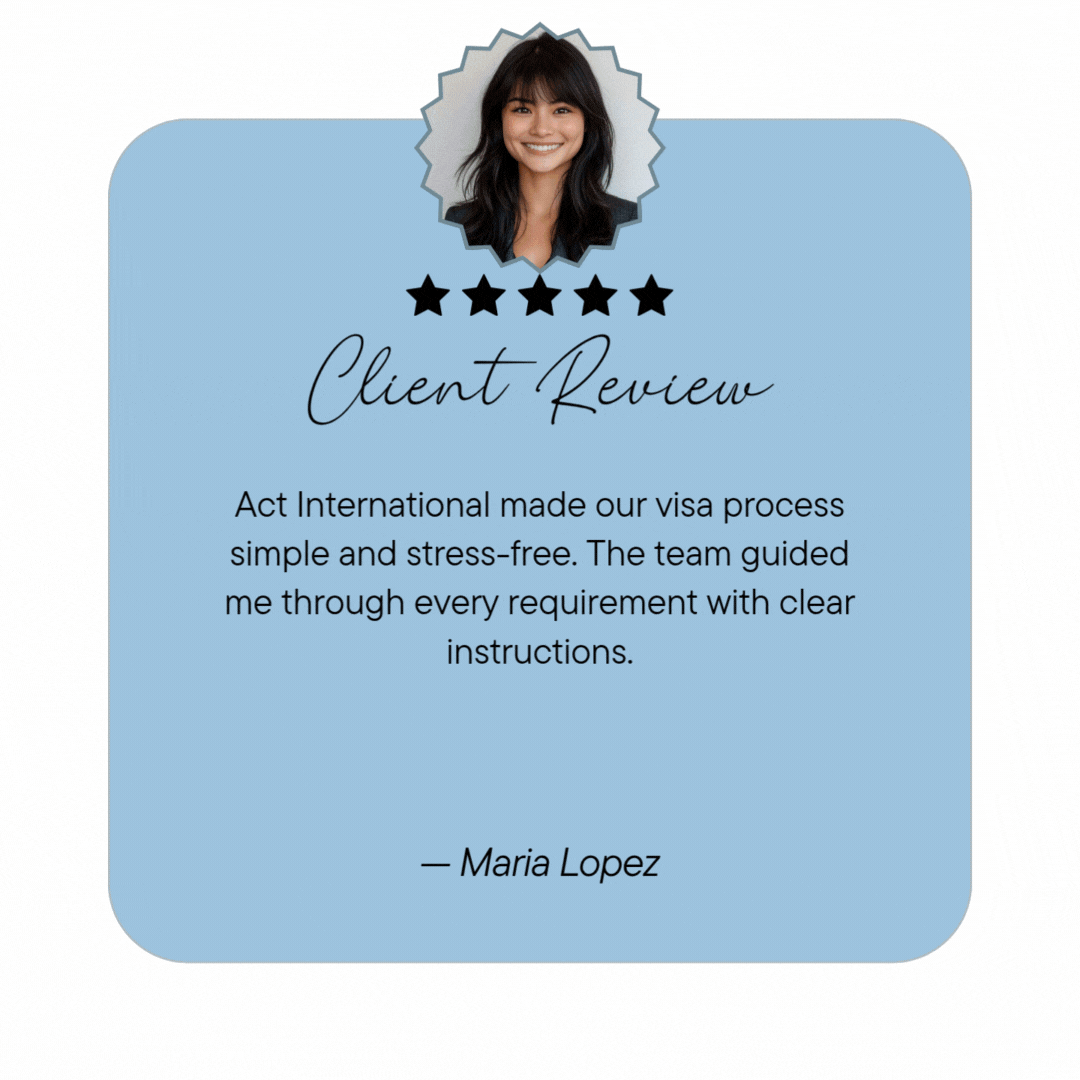1. Introduction
Is Living in Spain the Right Move for You?
There’s a reason so many people dream about living in Spain. The laid-back lifestyle, over 300 days of sunshine a year, great healthcare, affordable living, and vibrant culture make it one of the most appealing destinations in Europe. Whether you’re looking for a slower pace of life, a better work-life balance, or a safe place to raise a family, Spain offers something for everyone.
That said, moving here isn’t just about packing your bags. There are legal steps involved—what you need will depend on where you’re from, how long you plan to stay, and whether you intend to work, retire, study, or just enjoy life under the sun.
2. Why People Are Moving to Spain
Quality of Life
Cost of Living
Mediterranean Climate
Mild winters, sunny days, and warm summers. The weather alone is a major reason people move here. You can spend more time outdoors year-round—whether that’s relaxing at the beach or hiking in the hills.
Culture, Healthcare, and Education
Work/Life Balance
3. Are You Eligible to Live in Spain?
Before you start planning your move, it’s important to know whether you’re legally eligible to live in Spain. Your nationality, reason for relocating, and financial situation all play a role.
EU/EEA/Swiss Citizens
Non-EU Citizens
Key Eligibility Factors to Keep in Mind
- Age: Most long-term visas are for adults 18+, but family reunification visas can apply to children as well.
- Income or Employment: You’ll often need to show proof of a stable income. The amount varies depending on the visa type.
- Criminal Record: A clean background check (usually from your home country and/or where you’ve lived recently) is often required.
- Valid Passport: Your passport should be valid for at least six months beyond your intended stay.
4. Popular Visa Options
Spain offers several visa types depending on your plans and lifestyle. Here’s a quick overview of the most common options—who they’re for and what you’ll generally need to qualify.
1. Digital Nomad Visa
- For remote workers employed by or contracted with foreign companies.
- Requirements include: – Non- EU/EEA/Swiss nationality – Valid contract or freelance relationship (min. 3 months prior) – Degree
- or 3+ years of professional experience – Income ≥ 200% of Spanish minimum wage (SMI ≈ €2,760/month in 2025)
- Private health insurance and clean criminal record
2. Non-Lucrative Visa
- Ideal for retirees or those with passive income.
- Work is not allowed.
- Requirements: – Income ≥ 400% of IPREM (€28,800/year for main applicant in 2025) – +100% IPREM (€7,200/year) per dependent.
- Private full-coverage health insurance
- Clean criminal record
👉 More on the Non-Lucrative Visa: Contact us
3. Student Visa
- For those studying at recognized institutions.
Now allows work up to 30 hours/week. - Applicants must prove: – Acceptance into a full-time program.
- Financial means (usually 100% IPREM/month ≈ €600/month)
- Full health insurance
4. Entrepreneur/Start-up Visa
- Still active under Law 14/2013. Designed for those launching innovative projects with national interest.
- Requires a business plan, financial backing, and approval from ENISA or UGE.
5. Self-Employed Work Permit (Cuenta Propia)
- Traditional path for freelancers or business owners.
- Requires a business plan, sufficient funds, and licenses.
- This is separate from the entrepreneur/startup visa.
6. Arraigo (Roots-Based Residency)
- A path for those already in Spain under exceptional circumstances.
- As of 2025, options include: – Social (2 years in Spain + job offer)
- Labor (1 year in Spain + 6 months work)
- Training (2 years in Spain + study commitment)
- Family (Spanish or legal resident relatives)
- Second chance (formerly held residency)
7. Family Reunification
- For relatives of residents in Spain (EU and non-EU pathways differ).
- Sponsors must prove income, housing, and legal stay.
8. Family Member of an EU Citizen
- If your spouse or family member is an EU citizen residing in Spain, you may qualify for a residence card under the ‘regimen comunitario’.
- This applies even to non-married partners in registered relationships.
9. Highly Qualified Professional & EU Blue Card
- Designed for professionals with job offers in Spain. Fast-tracked via UGE (Large Companies Unit). EU Blue Card requires a degree and salary 1.5× the national average.
10. Intra-Company Transfer (ICT)
- For staff transferred within multinational companies to a Spanish branch.
- Must prove employment relationship and specialized skills.
11. Job Seeker Visa
- For graduates from Spanish universities or scholarship holders. Allows 12 months to search for a job or launch a business.
- General Requirements for Most Visas
Each visa type has its own process and timeline, but the right one can make your move to Spain smooth and successful. Still unsure? We’re here to help walk you through it.
5. What You’ll Need: General Requirements for Moving to Spain
While each visa type has its own specific checklist, most applications share a few core requirements. Here’s a general idea of what you’ll need to prepare:
Valid Passport
Make sure your passport is valid for at least 6 months beyond your intended stay in Spain.
Proof of Income or Financial Means
Most visa types require you to show that you can support yourself during your time in Spain. This could be a salary, savings, business income, or passive income—depending on the visa.
Health Insurance
You’ll need private health insurance with full coverage in Spain. This must be from a provider authorized to operate in the country and without co-payments.
Criminal Background Check
A recent police clearance certificate from your home country (and any country where you’ve lived in the past five years) is usually required.
Proof of Accommodation
You may need to show where you’ll be living—this could be a rental contract, hotel reservation, or letter of invitation.
Visa Application Forms
These vary depending on the visa, but all require a completed form, passport photos, and often additional documentation.
It can feel like a lot to organize, but you don’t have to do it alone. Our team helps you gather, prepare, and submit everything you need—without the overwhelm.
Would you like a checklist version of this for download or sharing?
Not quite eligible yet? That’s okay — relocating to Spain is still possible, and there are steps you can take to get there.
Whether you’re missing a bit of income, need to improve your Spanish, or don’t have a visa pathway just yet, there are other ways to begin your journey:
6. What If You Don’t Meet the Requirements Yet?
While each visa type has its own specific checklist, most applications share a few core requirements. Here’s a general idea of what you’ll need to prepare:
✔️ Learn the Language
Improving your Spanish not only helps with daily life but can also open doors to work, study, or long-term residency options. Plus, it’s a great way to integrate into the local culture while planning your move.
✔️ Study in Spain
Student visas are one of the most accessible options and allow you to live in Spain legally while studying. Many programs offer flexible schedules and are taught in English.
This can be a great stepping stone toward longer-term options.
✔️ Explore Remote or Freelance Work
✔️ Adjust Your Timeline & Make a Plan
While each visa type has its own specific checklist, most applications share a few core requirements. Here’s a general idea of what you’ll need to prepare:
Not sure where you stand?
7. How Activities International Can Help
We know that moving to a new country is a big decision—and it comes with a lot of questions. That’s why our team is here to guide you every step of the way.
At Activities International, we offer:
- 1-on-1 consultations to understand your goals and situation
- Visa guidance to help you choose and apply for the right path
- Support with housing, banking, insurance, and local integration
- A friendly, English- and Spanish-speaking team that understands expat life
We’ve helped digital nomads, retirees, families, and young professionals make Spain home—stress-free and fully supported.
8. Ready to Find Out If You’re Eligible?
If you’re thinking about relocating—or even just curious—start with a free eligibility consultation. We’ll help you understand what’s possible and what steps to take next.
Fill out this form to get started:
Let’s figure out your next step together.







